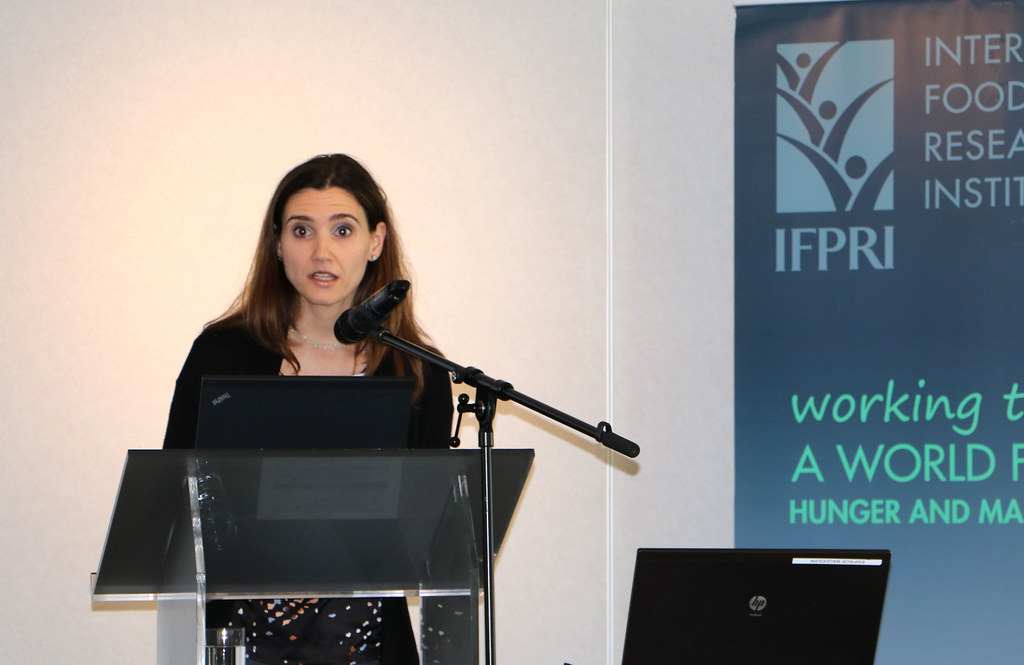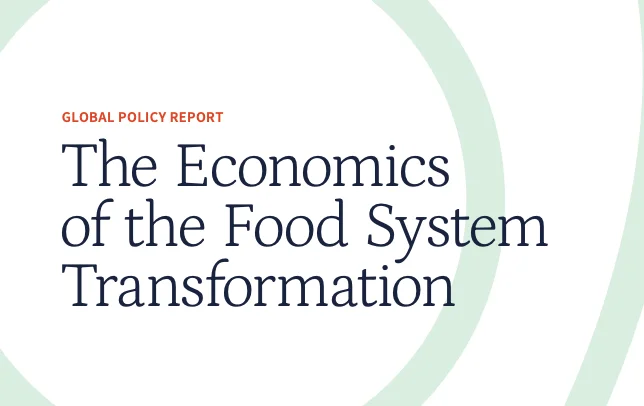This webinar focused specifically on these issues by presenting insights from a newly released IFPRI-Oxford University Press book on The Political Economy of Food System Transformation: Pathways to Progress in a Polarized World
With Danielle Resnick, International Food Policy Research Institute (IFPRI)"Compensation and incentives are important for farmers to embrace innovation"
"The Food systems count initiative challenge has some useful indicators for measuring progress of food systems transformation under CAADP. Possible indicators to measure progress may be dietary diversity and Green House Gasses (GHG) emission."
While the current structure of the global food system increasingly is recognized as unsustainable from a dietary and planetary health perspective, the policy pathways for achieving a transformed food system are highly contested. Furthermore, a broad range of polarizing factors affect decisions over the food system at domestic and international levels—from debates over values and (mis) information to concerns over food self-sufficiency, corporate influence, and human rights. 
The webinar examined why food system reforms are so challenging and discuss political economy enablers of, and barriers to, reform across a range of issue areas, such as repurposing agricultural subsidies, reducing red meat and ultra-processed food consumption, increasing uptake of appropriate biotechnologies, and adopting sugar-sweetened beverage taxes.
Further resources:
Synopsis in Nature Food systems transformation requires strategic attention to political economy - Published: 15 November 2023FSEC (2024) The Economics of the Food System Transformation Global Policy Report. The FoodSystem Economics Commission, 117 pages
- The economic and planetary case for transforming our food systems is compelling. But negotiating change across a multitude of diverse stakeholders with unequal power and varying prospects from the transformation is an enormous challenge.
- The report confronts this challenge head on, highlighting practical ways to dismantle barriers to change and develop achievable transformation strategies.
- Evidence shows that embracing equity and inclusion is key to making a transformation politically viable and thus essential for success.
- The report summarizes the findings of a four-year investigation by the Food System Economics Commission (FSEC), an independent commission expressly created to assess options for comprehensive food system transformation. FSEC findings are based on rigorous economic modeling, in-depth literature reviews, and case studies. All background research is available at foodsystemeconomics.org.
The Food Systems Countdown Initiative (FSCI)
The Food Systems Countdown Initiative (FSCI) is working to build a science-based system to track food systems globally.- No rigorous mechanism currently exists to measure and track all aspects of global food systems, their interactions, and their changes over time.
- Deliberately changing complex systems that cut across sectors, jurisdictions, and national borders calls for a comprehensive, ongoing program of observation and assessment of all aspects of the system and their interactions to guide decisionmakers and hold those in power to account for transformation.
- Tracking food systems facilitates performance assessment relative to established targets and goals and incentivizes action. Doing so for food systems complements other global and regional monitoring and tracking initiatives focused on related outcomes, such as sustainable agriculture, nutrition, and health.
- Such monitoring can further offer food system actors and stakeholders (e.g., civil society, governments, and international organizations) actionable evidence to hold governments, consumers (specifically, those with the privilege to choose), and the private sector accountable for food system transformation.
Upcoming:
22 February 2024. Research case study Creating evidence for sustainable diets to improve food systems - City Professor pioneers research on sustainable diets and food systems.- lecture by Professor Timothy Lang, Emeritus Professor of Food Policy
- Tim Lang has shaped recognition that food consumption, not just production, is a challenge for humanity. Food is one of the major sources of impact on public health, ecosystems, jobs and the economy, as well as social justice and culture. Professor Lang’s work on ‘sustainable diets’ has posed the challenge to policy-makers of how to deliver sustainability through food.
His work has been picked up at the global level in the UN, has helped reshape European food policy beyond the farmgate and has informed House of Commons select committees and taken the case for sustainable diets to consumers.





No comments:
Post a Comment